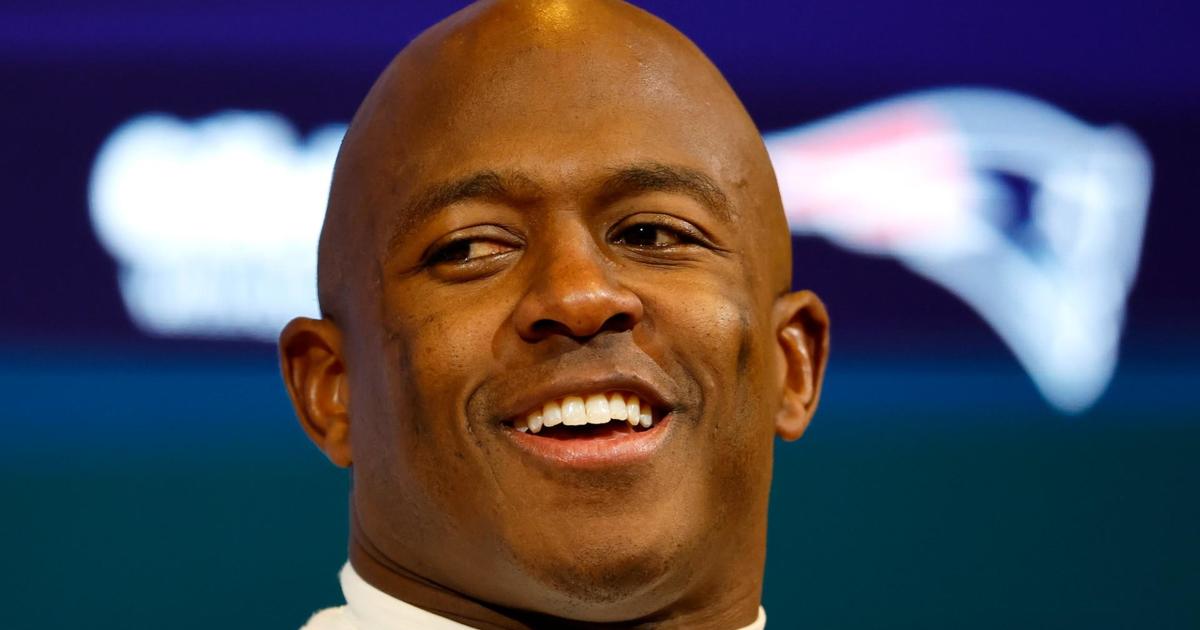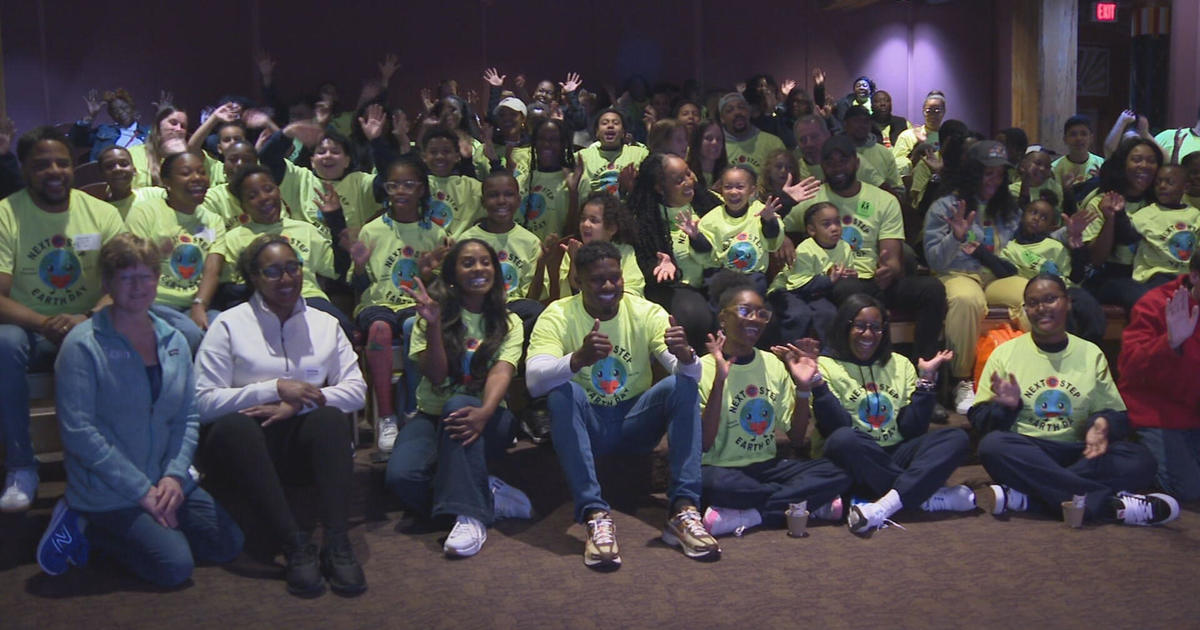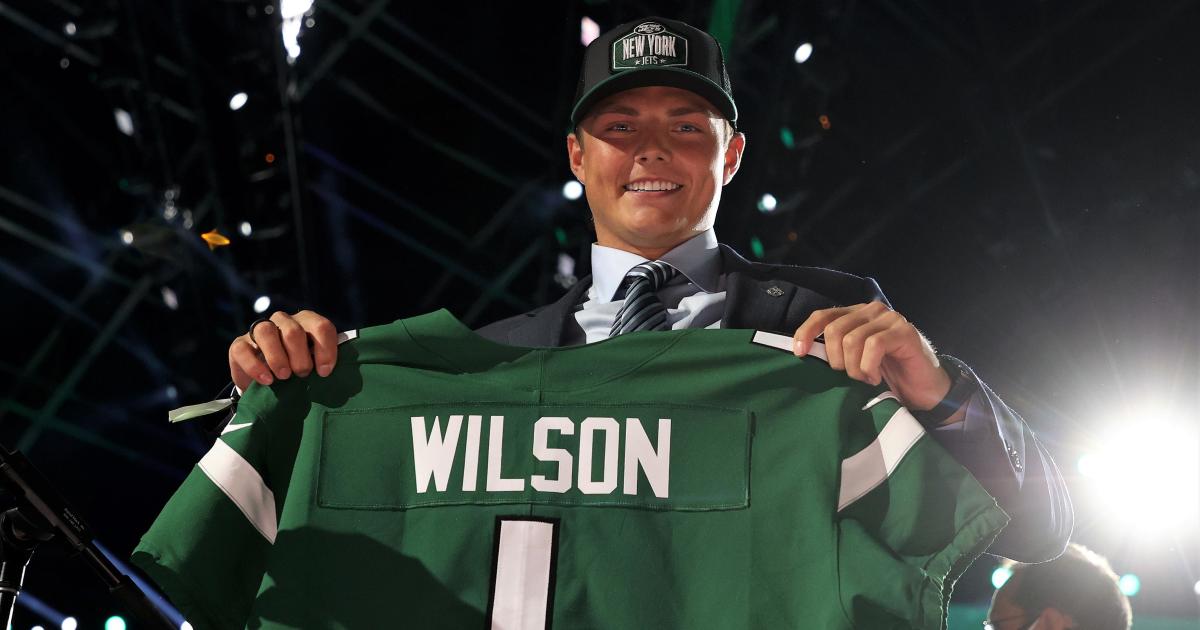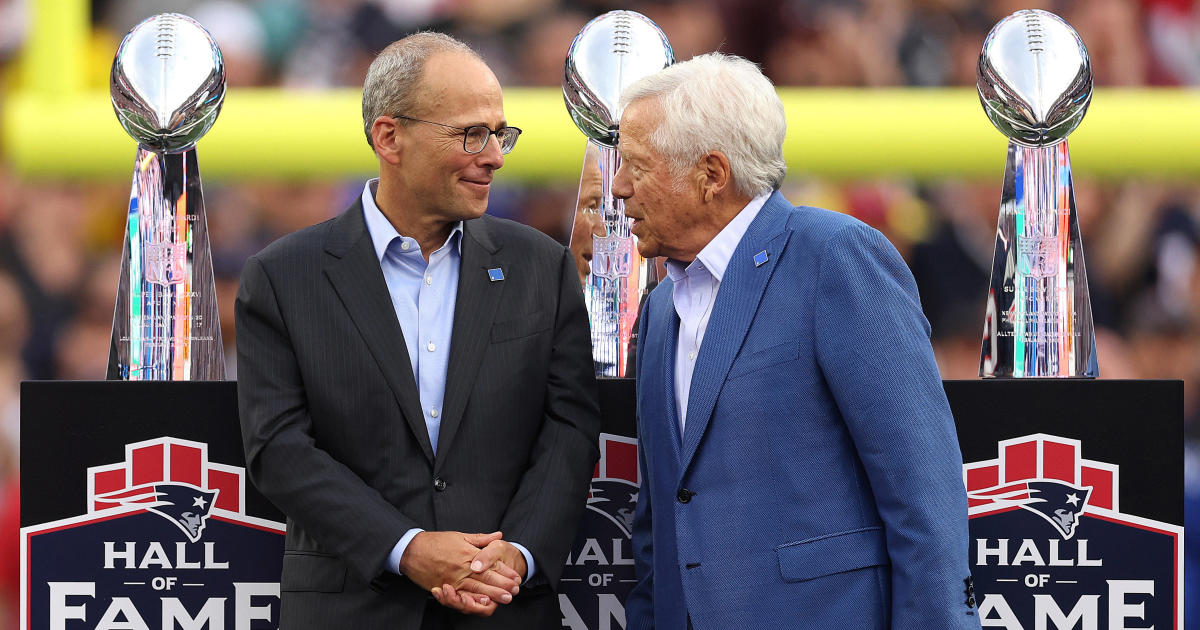Supreme Court's History Shows Tom Brady's DeflateGate Fight Has A Chance
By Michael Hurley, CBS Boston
BOSTON (CBS) -- It was bound to happen. As soon as the average American heard the words "Supreme Court" in the same sentence as "Tom Brady" and "DeflateGate," there was going to be a guttural reaction from the public.
To most of us, the Supreme Court sits high atop a mountain, in the clouds, where the justices look down on the rest of society. Only the most significant of significant cases ever get heard by their mighty ears, and their rulings always affect our country substantially and in many ways.
The Supreme Court has not the time for your frivolous footballs.
That idea isn't without reason, of course. Typically when we hear about the Supreme Court in the news, it's when landmark decisions are made. Recently, that's involved abortion rights, marriage rights and the like. Historically, we learn of Roe v. Wade, Dred Scott v. Sandford and Brown v. Board of Education when we're 13 years old. Kids these days are likely informed of Bush v. Gore. Those who major in journalism spend a few hours on New York Times v. Sullivan.
But the education typically stops there. Not many of us are tuned in to the day-to-day goings-on of the Supreme Court of the United States, and so our instinctual reaction to talk of Brady taking the case there is one of disbelief, disgust, whatever. Just tune in to the NFL Network to fill in the blanks.
And that's where the basis lies for columns like Chris Gasper's in The Boston Globe on Thursday. The headline -- "Deflategate case supremely unfit for highest court" -- provides the general idea that follows in the story.
"The only thing more absurd than Brady's trumped-up suspension would be the Supreme Court serving as referee for the NFL and commissioner Roger Goodell and the NFL Players Association and Brady in their grudge match," Gasper wrote. "America has an unhealthy obsession with football, but is it really appropriate for that obsession to spill into the highest court in the land? An institution that deals with weighty issues that affect the lives of millions, such as marriage equality, reproductive rights, and campaign finance, is now going to intervene in a power struggle between millionaires and billionaires over who gets to play in football games? No thanks."
He added: "Sports is the toy department of life. There are thousands of people in the real world in dire need of real judicial relief. There is nothing at stake in this case that rises to the level of Brown v. Board of Education, Loving v. Virginia, Roe v. Wade, or Miranda v. Arizona. It's not the job of the Supreme Court to rewrite the NFL's odious, authoritarian CBA before it expires in 2021."
Logically, it makes sense. It is a good column, and its sentiment is likely endorsed by the majority of the country.
But ... is it informed? Or is it based off a feeling? Do we really know that this case, the one where the $45 billion monolith known as the NFL disregarded the rules of arbitration which guarantee a fundamentally fair process to any aggrieved party, is of far less significance than the average case that gets heard in D.C.?
Let's take a closer look at some of the cases heard by the Supreme Court in recent years to get an answer.
2015 term: DIRECTV, Inc. v. Imburgia
Here, the Supreme Court voted to overturn a California state court's decision regarding an arbitration agreement between satellite TV provider DirectTV and its customers. The ruling "serves notice that efforts by courts to circumvent arbitration agreements will not be tolerated."
Hey, that sounds vaguely familiar, doesn't it?
Justice Ruth Bader Ginsburg, who will be the one who decides whether Brady and the NFLPA's case is worthy of Supreme Court consideration, dissented with the Court's opinion, writing, "This Court has again expanded the scope of the FAA, further degrading the rights of consumers and further insulating already powerful economic entities from liability for unlawful acts."
Hmm ... "insulating already powerful economic entities from liability for unlawful acts." Interesting.
2016 (scheduled): Star Athletica v. Varsity Brands
This is a case that is about cheerleading uniforms.
Specifically, it's about "What is the appropriate test to determine when a feature of a useful article is protectable under section 101 of the Copyright Act." But it is, behind the legal jargon, a case about cheerleading uniforms, and the right to copyright cheerleading uniforms.
As Forbes described:
Varsity Brands, the world's largest cheerleader uniform company, says its colorful patterns of chevrons and stripes are no different than two-dimensional textile designs, which can be copyrighted along just like popular images such as Mickey Mouse. Star Athletica, a startup trying to break into the cheerleader biz, says colorful designs are an inseparable part of a uniform because they identify the wearer as a cheerleader. A district court agreed with Star Athletica but the Sixth Circuit Court of Appeals disagreed.
The highest court in the land. Cheerleading outfits.
2016: Lockhart v. United States
This one is gross. A federal statute requires that anyone convicted of possessing child pornography who also has a prior conviction related to sexual abuse must serve a minimum 10-year prison sentence. One man, Avondale Lockhart, fit the bill, but he claimed the statute was written vaguely and that the qualifier didn't apply to him and thus, he should not be required to serve the 10-year prison sentence.
He lost in a 6-2 decision, but the point is that the Supreme Court entertained the argument of someone who possessed child pornography and also had previously sexually abused a 53-year-old woman. Somebody like that got an ear from the Supreme Court, largely due to a grammar dispute.
2014: T-Mobile South, LLC v. City of Roswell, Georgia
T-Mobile wanted to build a cell tower in Roswell, Georgia. The folks of Roswell held a public hearing and decided they didn't want a T-Mobile cell tower. The city of Roswell sent a letter to T-Mobile, rejecting their application without explaining why.
The city of Roswell eventually provided a transcript of the minutes of the public hearing to T-Mobile, but it came much later than the rejection letter, hindering T-Mobile's ability to properly appeal. T-Mobile took the case to the district court and won. The Eleventh Circuit reversed the decision, saying proper notice was provided. The Supreme Court then reversed that decision, stating that the reasons needed to have been stated when the rejection was sent to T-Mobile.
In fact, there's even a part in here that runs somewhat parallel to the NFLPA's argument that the NFL had access to the Paul, Weiss investigative notes in preparation for Brady's appeal hearing while the union did not.
From Faegre Baker Daniels: "Thus, the City could rely on detailed minutes to provide the required reasons, but the City did not provide those reasons in writing here contemporaneously with the issuance of the denial letter."
That certainly relates to the NFLPA's case. But regardless, the Supreme Court got involved with a dispute over a cell phone tower.
2014: Walker v. Texas Division, Sons of Confederate Veterans
Sons of Confederate Veterans in Texas wanted specialty license plates that included the Confederate flag. The state of Texas denied this request. The Supreme Court upheld that denial.
It was a 5-to-4 decision, too, so there was clearly a healthy debate among the judges. Over personalized license plates.
At the time, nine states had allowed the Confederate flag to be displayed on specialty plates.
2013: Petrella v. Metro-Goldwyn-Mayer, Inc.
At the heart of this issue was a woman whose father wrote the book and screenplay for "Raging Bull." She believed she had the rights to the full copyright of the work; MGM believed it held all necessary rights.
The woman, Paula Petrella, claimed MGM committed copyright infringement. Considering that the book was written in the '60s and the lawsuit was filed 2009, lower courts ruled that she had taken too long to file such claims. The Supreme Court reversed the decision.
Peterella ended up getting her money from MGM in a settlement, but only because of an assist from the Supreme Court.
2011: FCC v. Fox Television Stations, Inc. (2012)
This case goes all the way back to 2002 and 2003, when Cher and Nicole Ritchie dropped F bombs during the Billboard Music Awards on Fox. The FCC fined Fox, and Fox fought those fines.
The case was initially sent back to the Second Circuit, where a judge magnificently wrote, "by prohibiting all 'patently offensive' references to sex, sexual organs, and excretion without giving adequate guidance as to what 'patently offensive' means, the FCC effectively chills speech, because broadcasters have no way of knowing what the FCC will find offensive."
Fox was saved from having to pay some fines, thanks to the Supreme Court.
2011: Christopher v. SmithKline Beecham Corp.
Two pharmaceutical salesmen worked a lot of hours, and despite being salaried employees who were eligible for bonuses, they wanted to be paid time-and-a-half for every hour worked after 40 hours in a given week.
They were denied by a 5-to-4 decision by the Supreme Court.
2010: Snyder v. Phelps
This one's interesting because the Supreme Court actually ruled 8-to-1 in support of the Westboro Baptist Church's right to picket funerals of soldiers with offensive signs that display hatred. The father of a soldier who had died sued the Westboro Baptist Church and won, but that decision was overturned in a federal appeals court. The Supreme Court upheld that decision on the basis of free speech and the fact that the protestors were far enough away from the funeral so as to not wholly disturb the ceremony.
The Westboro Baptist Church's "belief that God hates the United States for its tolerance of homosexuality, particularly in America's military" was a champion in the Supreme Court.
---
Fun wrinkle: Justice Sonia Sotomayor has in the past recused herself from cases brought to the Supreme Court after being ruled on by the Second Circuit, because she used to serve on that Court. That means if the Brady case does end up being heard by the Supreme Court, and if Sotomayor recuses herself like she has in the past, and if the confirmation of the ninth justice is delayed beyond the window that this case would be heard, then the chances of the case reaching a split decision would effectively be eliminated. That's a story for a later day, but it was an a worthwhile footnote.
---
This is hardly a comprehensive list of everything the Supreme Court handles. It is merely a spotlight on some cases that might otherwise not be known as having reached the Supreme Court.
In digging through the records, the Supreme Court has issued opinions in roughly 80 cases per year since 2009. That's over 550 cases. Not all of them involved life and death, or basic freedoms. Many of them involved the detailed interpretation of language and law.
There were many cases about individuals' rights and protections. Some of them involved criminal charges and sentences. Many of those decisions really only affected the individuals bringing the particular case to the court.
Many other cases involved labor law and employee rights.
That's the key reminder. It's not a football dispute. It's not a matter of touchdowns and interceptions, wins and losses, Patriots and Jets. It long ago became a labor dispute, one that's drawn the attention of the AFL-CIO and one that's been ruled in vastly different fashions by a federal judge and three appellate judges.
Similar cases are heard by the Supreme Court with frequency.
Of course, that doesn't mean that Brady's case will definitely be heard or should definitely be heard. That's up to the Supreme Court justices, who without question know a few things more about which cases rise to the level of the Supreme Court than the average football fan.
Brady's lawyer, Ted Olson, is also quite familiar with that standard, as he's argued before the Supreme Court more than five-dozen times in his legal career.
We'll find out in due time whether this case is worthy of consideration from the highest court in the land. The fact that Brady vs. the NFL doesn't carry the implications of Roe v. Wade on the American public will play no role in how that decision is made.
UPDATE: Tom Brady has dropped his fight and ended his appeal. We'll never get to learn the Supreme Court's stance on the matter.
You can email Michael Hurley or find him on Twitter @michaelFhurley.



